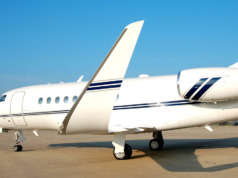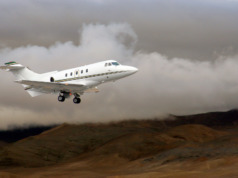You’ve taken the exciting step of purchasing your first aircraft, and have put a well-qualified team in place to make it happen. In addition to regulatory and tax issues, you need to address these four key questions in order to operate your new aircraft effectively:
1 Management Company or Flight Department?
While each option has pros and cons and each can work well to oversee your aircraft operations, first-time owners often opt to use a management company. This choice allows you to ease into aircraft ownership, while depending on the management company for most support services. Key to success is a thoughtful selection process. As there is much variation in how management companies provide their services, it is critical that you first clearly identify your specific needs, and then incorporate them into the Request for Proposal (RFP) sent to candidates.
Since using a management company involves delegating many decisions, should you prefer a higher degree of control, forming a customized flight department is likely your better option. Again, it is imperative to identify your needs, in order to shape the selection process for the individual who will lead your flight department.
2 To Charter or Not to Charter?
A frequent misconception is that you can make a profit by chartering your airplane to third parties. To avoid unpleasant surprises, take time to educate yourself on the advantages and disadvantages of charter before deciding whether it is right for you. Depending on your aircraft’s operating costs, the potential financial benefit from charter may not be as much as you think and thus not worth it. In short, while charter can help offset your costs, you will not make a profit. And sometimes charter is not a practical option. For example, if you intend to use the aircraft 400+ flight hours per year, there likely will be no available time to fit charter into the schedule. If you want your own airplane available for your own use all the time, charter is not a good idea.
3 Who Uses the Airplane and How to Control Use?
If you are the only or primary user of your aircraft, then normally your executive administrator will help coordinate your travel arrangements with your flight department or management company. However, if more than one owner or multiple executives will have access to the aircraft, or if the airplane will be made available for charter, scheduling becomes more complicated. In such cases, create clearly defined rules as to how scheduling conflicts will be resolved, and designate just one person to schedule and coordinate any changes to the schedule. This person may be either a dedicated aircraft scheduler or your executive administrator, depending on the level of travel activity, and whether you have engaged a management company.
4 How Will You Manage the Maintenance?
The most important aspects of maintenance management are planning, accomplishing, and controlling the cost of the actual maintenance work, and keeping accurate maintenance records. Many new owners don’t realize until it’s too late that proper paperwork has a significant impact on the resale value of their aircraft. (See “For the Record,” BAA, Nov/Dec 2015). Designate one qualified individual to be responsible for both tasks, whether you use a management company or have your own flight department. If yours is a large aircraft, or flies more than 200 hours annually, it’s wise to have a dedicated maintenance manager (See “There’s No Place to Pull Over at 41,000 Feet,” BAA May/June 2014). If it is a smaller aircraft, or flies infrequently, then often only part of a maintenance manager’s time is required to get the job done properly.
Answering these key questions will help you enjoy all the benefits afforded by business jet ownership. BAA
Business Aviation Advisor's content is presented by experts in all aspects of aircraft management: professionals knowledgeable in operations, legal and regulatory issues, insurance, aircraft finance, human resources, aviation real estate, charter and charter brokers, safety management providers and auditors, and third-party as well as owner aircraft management. These authorities provide Business Aviation Advisor readers with the most current and pertinent information they need to make the most effective and informed decisions about their business aviation investments.




